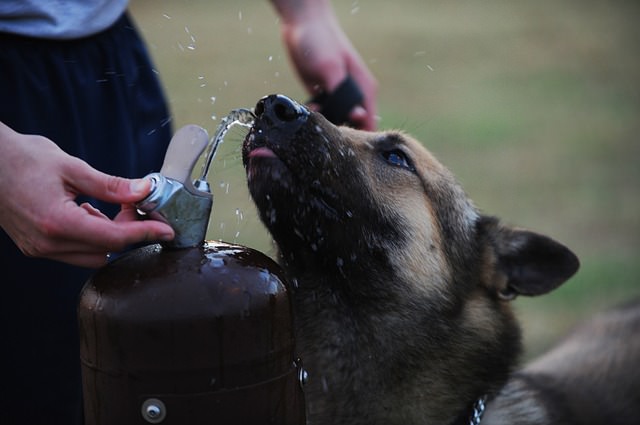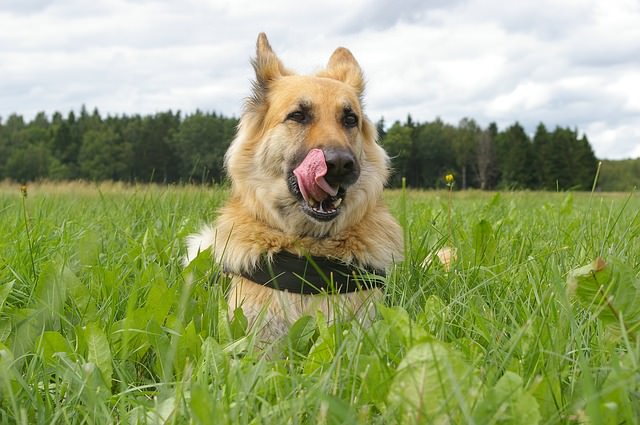If you have ever had the good fortune to love a German Shepherd then you know how much they enjoy a good meal. Sadly, they are one of a handful of breeds with a predisposition for a disorder called megaesophagus. (Remember this puppy with megaesophagus whose life was saved by a special high chair?)
The condition develops when the esophagus – the tube connecting the throat and the stomach – becomes enlarged, making it difficult for the affected dog to swallow food and water.

Megaesophagus is widespread in German Shepherds because they have a tendency towards both types of the disease. In congenital megaesophagus, the condition is inherited genetically, and in idiopathic megaesophagus, it develops later in life as a result of an illness or injury.

In some cases, the muscles of the esophagus fail to contract properly, preventing food from being propelled into the stomach. This is often caused by a neurological condition. In other cases, physical blockages prevent food and water from getting into the stomach. This is mainly seen in German Shepherds with tumors or those who swallow foreign materials.

The major symptom of megaesophagus is regurgitation, a response quite different from vomiting. When an animal vomits, they actively heave and violently expel partially digested material from inside the stomach. Those suffering from megaesophagus passively regurgitate swallowed food or water that never makes it beyond the pharynx or esophagus.

Most German Shepherds with megaesophagus will experience some degree of weight loss. Since food is not able to reach the stomach, they are unable to absorb adequate nutrition from their meals. Other common symptoms include persistent coughing, respiratory problems, nasal discharge, salivation, foul breath, difficulty swallowing, and fever.

Megaesophagus may become life-threatening if it is left untreated, resulting in malnutrition. Another serious concern is aspiration pneumonia. This occurs when regurgitated materials enter the lungs, leading to inflammation, infection, and respiratory distress.

The good news is that megaesophagus can certainly be managed with proper diet and adjusted feeding methods. Dogs with tumors and foreign bodies benefit from surgery to remove the obstruction(s), and those who develop the condition as the result of another disease may improve with treatment of the initial illness.

GSDs with chronic megaesophagus should be fed regular small meals from raised bowls that force the upper body into an angle of at least 45 degrees. This posture allows gravity to aid food down into the stomach. Seek veterinary advice as to the type of food to choose. Smooth texture and an easy-to-swallow consistency are imperative.

Unfortunately, there is no surefire way to prevent your German Shepherd from becoming afflicted with megaesophagus – especially if the cause is genetic. However, closely monitoring your dog”s environment to prevent foreign bodies, and feeding a highly digestible diet may help.

Monitor your GSD for signs and symptoms of illness and seek veterinary care immediately in the event of regurgitation and/or weight loss.
H/T to Total-German-Shepherd.com
Featured Image via Instagram/ @WoofWoof_Lexy
